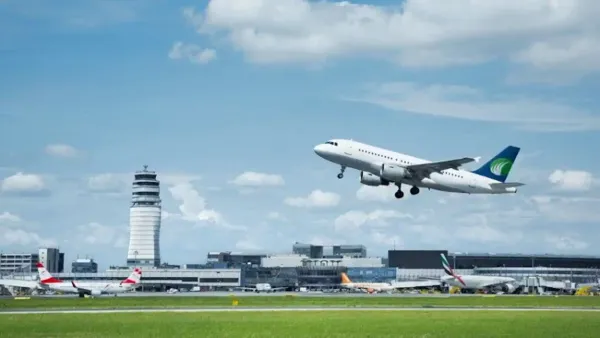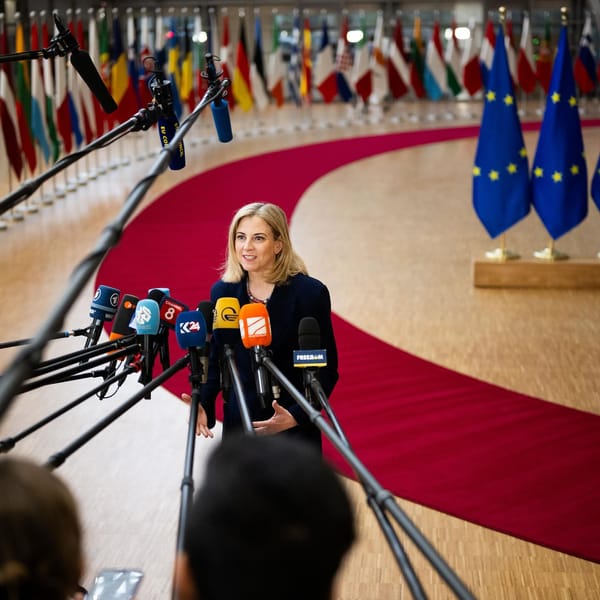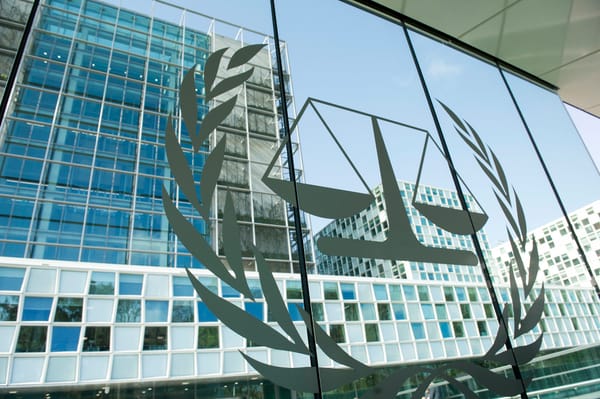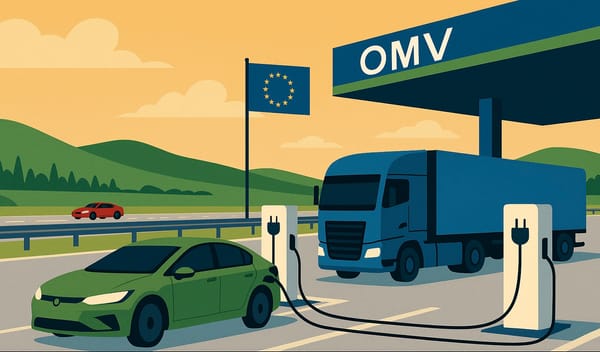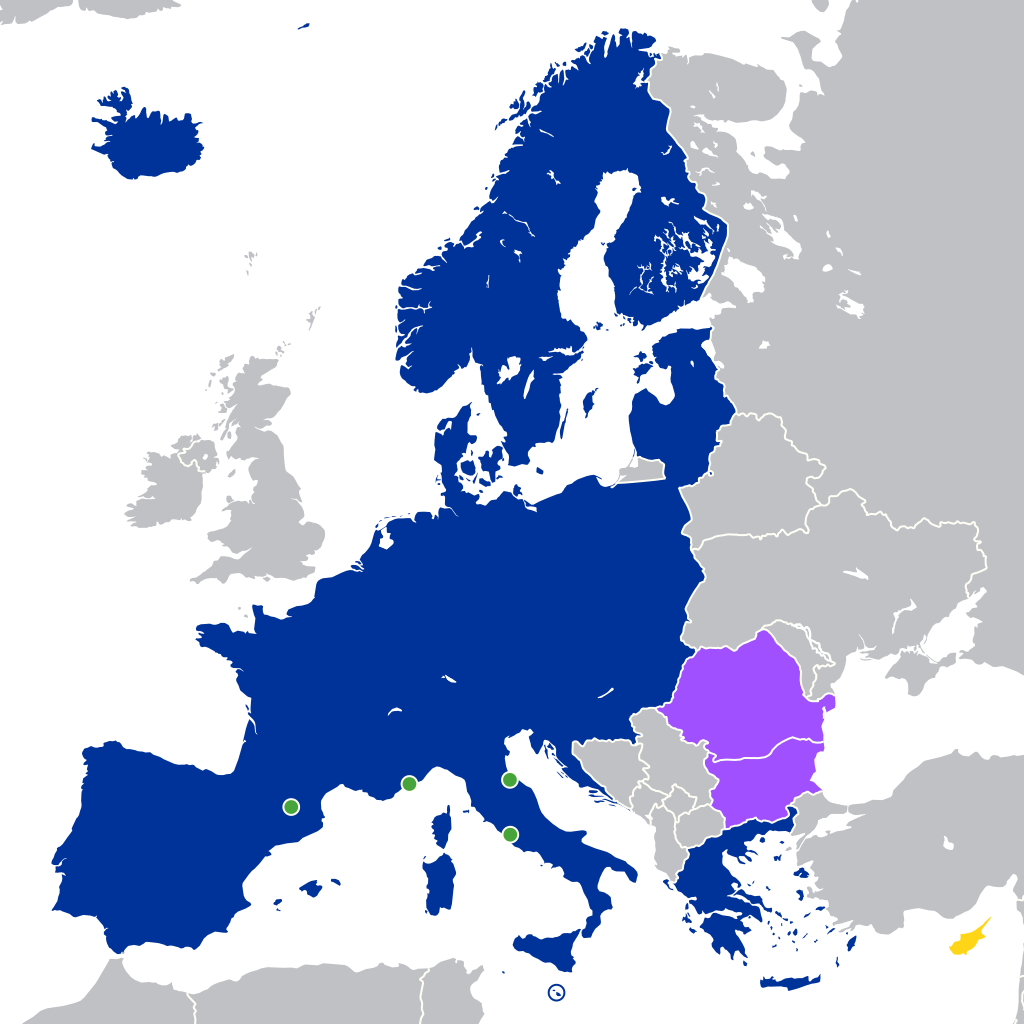
Bulgaria, Romania to join Schengen free travel area
Romania and Bulgaria are set to become full members of the Schengen Area on 1 January, a significant milestone in their integration into the borderless zone. This represents the destination of a journey that began in 2011 when the European Commission (EC) first adjudged both countries as ready to join, aided by Austria’s decision to lift a long-standing veto that had stalled Romania and Bulgaria’s entry into Schengen.
The move eliminates land border checks with other Schengen countries, following the lifting of air and sea checks earlier this year. However, Hungary will continue lorry inspections at the crossing at Nadlac, west Romania, for at least six months. Bulgarian authorities have also introduced a EUR 25 fee for lorries crossing the Danube bridge into Romania.
Romanian truck drivers have suffered extensive delays at borders, with losses for the road transport industry estimated at EUR 19bn from 2012-23. According to the Romanian Road-Hauliers’ Association, these delays have hurt trade, pushed up consumer prices, and even deterred investment, such as when German carmaker BMW chose Hungary over Romania for a new factory due to border inefficiencies.
While private travellers will benefit immediately, experts believe that new arrangements for lorry checks could take months. Industry leaders, however, remain optimistic about Schengen membership enhancing competitiveness in Western and Northern Europe.
Road to accession
Austrian Interior Minister Gerhard Karner said in a statement his country “can take the next step at the EU Council”. “After ‘Schengen Air’, ‘Schengen Land’ is now open to Romania and Bulgaria,” he added.
Austria had long blocked Romania and Bulgaria fully joining the free-travel area, citing irregular migration concerns. While many EU members, including Germany and France, had eased their opposition over the years, Austria remained a roadblock until its recent shift, which reportedly occurred at a recent meeting in Budapest.
The veto caused tension between the countries. Last September Romanian Prime Minister Marcel Ciolacu warned that if Austria did not remove its veto on Romania’s Schengen accession bid by December, Romania would take the matter to the EU Court of Justice. “If Austria votes against Romania’s Schengen accession in December, I will certainly appeal to the European Court of Justice,” Ciolacu added.
Austria’s lifting of the veto has been met with optimism. Hungary, currently hosting the rotating EU presidency, described the move as a “great victory” for Romania, Bulgaria, and Europe as a whole.
However, this celebratory moment is tempered by a key compromise: the reintroduction of border checks between Romania, Bulgaria, and Hungary, set to last for at least six months, aimed at addressing ongoing concerns about migration, meaning the full benefits of Schengen will not be realised immediately.
Security concerns linked to politics
The political dynamics behind the Schengen enlargement process reveal the importance of national security concerns in EU policymaking. Migration fears have played a significant role in shaping the decisions of countries like Austria. The temporary reintroduction of border checks between Romania and Bulgaria, while framed as a compromise, underscores the influence of domestic political pressures on EU policies.
Saila Heinikoski, a senior researcher at the Finnish Institute of International Affairs, told Brussels-based media that the reintroduction of internal border controls can serve as a “tool” for politicians to show domestic audiences that they are actively addressing security concerns. While the checks may not be intrusive, they reflect a broader trend within the EU of using border controls to manage migration flows, despite their contested effectiveness.
Schengen major source of pride for EU
The Schengen Area remains one of the EU’s most successful integration projects, involving nearly 450mn people across 29 countries. Statements from EU leaders, including European Commission President Ursula von der Leyen and European Parliament President Roberta Metsola, say a stronger Schengen means a safer and more united Europe. Hence, Romania and Bulgaria’s accession is a victory for the EU’s eastern expansion and integration, but it also highlights the pragmatic need for internal security while balancing its open border policy.
The introduction of temporary border checks underscores the practical challenges of implementing the Schengen vision. The political agreement between EU member states reflects the ongoing tension between the ideal of a borderless Europe and the growing security concerns within certain member states.
For the EU, the introduction of these temporary border checks reflects a shift in priorities, where security concerns are increasingly taking precedence over the ideal of a borderless Europe. This trend raises questions about the future of Schengen and the EU’s ability to manage internal borders while maintaining its commitment to the free movement of people.
The cautious optimism surrounding the decision on Bulgaria and Romania reflects the broader challenges facing the EU in balancing openness with the need to address internal security concerns over migration.

